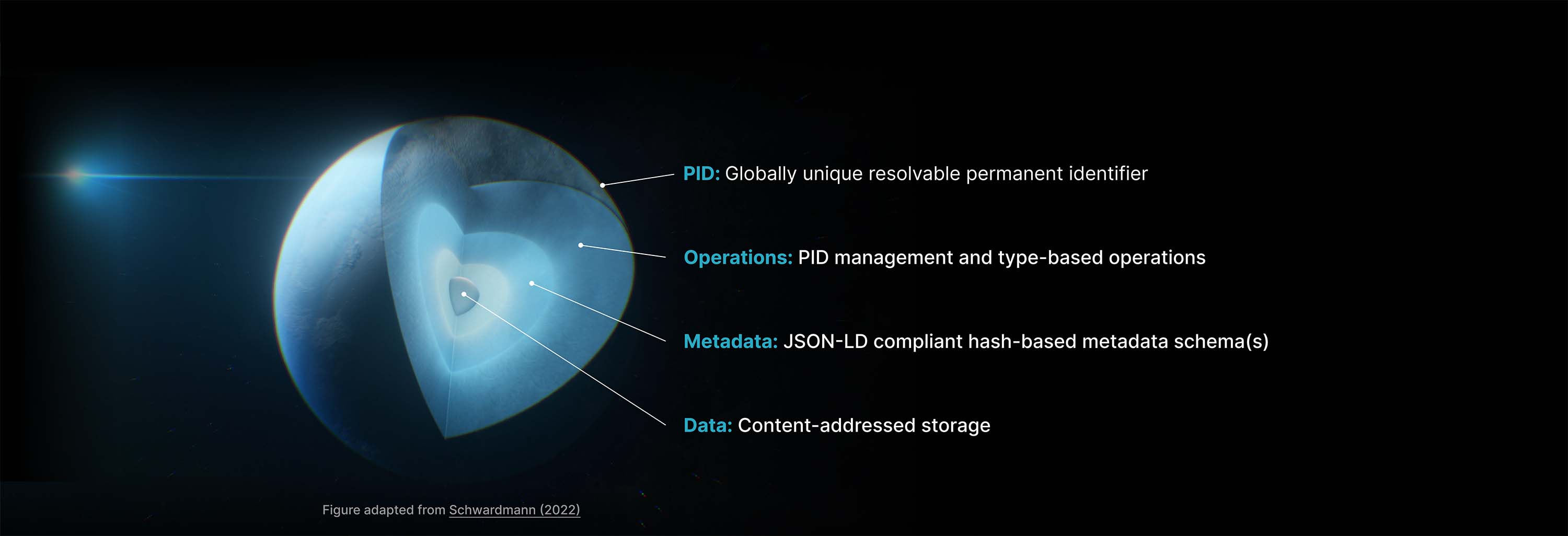The persistent identifier built from the ground-up to power the FAIR principles
Machine agents are transforming the way we interact with information
The dPID is a persistent identifier architected for machine actionability. dPIDs guarantee global uniqueness, an immutable designation to their mapped resource, and consistent resolution to their (meta)data for humans and machines.
dPIDs: globally unique persistent resolvable identifiers
dPIDs are based on content identifiers (CIDs) which are cryptographic fingerprints of their resource, thus providing strong probabilistic guarantees of global uniqueness.
dPIDs uniquely identify any hash-based data object and ensures the same logical object always maps to the exact same sequence of bits.
Data can’t change its fingerprint. The data indexed by dPIDs always resolved to its mapped resource, without reliance on social contracts.
PID owners can version the data indexed by the PID while maintaining an transparent and secure log of “who, what, and when” something has changed.
dPIDs have a human-friendly, compact URL alias that is secure and decentralized. Minting a single dPID creates unique PID for every resource in a file system.
The dPIDs and their indexed data are replicated on a distributed data storage and indexing network. The network is open and opt-in, anyone can contribute to ensuring long-term access.
FAIR Digital Objects: Layers of encapsulation

